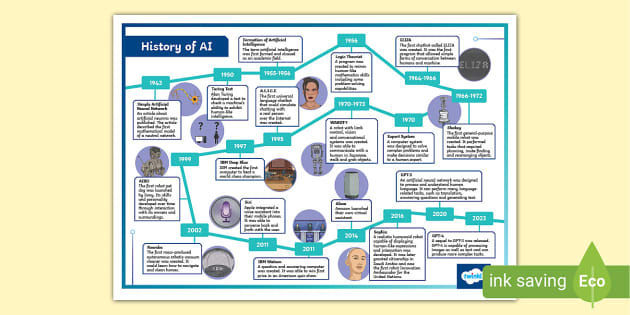Delve into the evolution of AI from science fiction dreams to the cutting-edge technology shaping our reality today. Explore now!
Table of Contents
Artificial Intelligence (AI) has long been a subject of fascination and speculation in popular culture, often portrayed as a revolutionary force capable of reshaping the world as we know it. Today, AI is no longer confined to the realm of science fiction; it has become an integral part of our daily lives, revolutionizing industries, transforming business operations, and changing the way we interact with technology. In this blog post, we will explore the evolution of AI through the ages, from its humble beginnings to its current applications and future potential.
Introduction to AI
AI, in its simplest form, refers to the ability of machines to exhibit human-like intelligence, such as learning, reasoning, problem-solving, and decision-making. The field of AI encompasses various subfields, including machine learning, natural language processing, computer vision, and robotics. Machine learning, a subset of AI, allows machines to learn from data and improve their performance over time without being explicitly programmed.
Historical Context
The concept of AI dates back to the 1950s, with the groundbreaking work of pioneers such as Alan Turing and John McCarthy laying the foundation for modern AI research. Over the decades, AI has witnessed significant advancements, from early expert systems to today’s sophisticated neural networks and deep learning algorithms. Key milestones, such as IBM’s Deep Blue defeating chess champion Garry Kasparov in 1997 and Google’s AlphaGo defeating world champion Lee Sedol in 2016, have propelled AI into the spotlight.
Current Applications
AI is powering a wide range of applications across industries, including healthcare, finance, transportation, and entertainment. Virtual assistants like Siri, Alexa, and Google Assistant have become household names, while self-driving cars and drones are transforming the way we commute and deliver goods. Machine learning algorithms are being used to detect fraud, diagnose diseases, personalize recommendations, and optimize supply chain operations.

Image courtesy of www.linkedin.com via Google Images
Benefits of AI
The benefits of AI are myriad, ranging from increased efficiency and productivity to enhanced decision-making and customer experiences. AI technologies have the potential to automate mundane tasks, analyze vast amounts of data at scale, and uncover insights that would be impossible for humans to discern. AI-powered systems can optimize resource allocation, reduce errors, and improve outcomes across various domains.
Challenges and Ethical Concerns
Despite its immense potential, AI also presents challenges and ethical concerns that need to be addressed. One major concern is the bias present in AI algorithms, which can perpetuate discrimination and reinforce societal disparities. There are also concerns about job displacement due to automation, privacy issues related to data collection and surveillance, and the lack of transparency and accountability in AI systems.

Image courtesy of www.twinkl.ca via Google Images
Future Direction of AI
The future of AI holds immense promise, with ongoing research and advancements paving the way for new possibilities. As AI continues to evolve, we can expect to see more sophisticated applications in areas such as personalized medicine, predictive analytics, autonomous systems, and human-machine collaboration. Ethical considerations, regulation, and responsible AI practices will be crucial in shaping the future direction of AI.
Can Skynet Happen?
The fictional concept of Skynet, an AI system that becomes self-aware and launches a global war against humanity, serves as a cautionary tale about the potential dangers of unchecked AI development. While the scenario depicted in movies like “The Terminator” may seem far-fetched, it raises important questions about the implications of advanced AI systems. Ensuring that AI technologies are developed and deployed ethically and responsibly is essential to mitigate the risks associated with AI.

Image courtesy of www.analyticssteps.com via Google Images
Case Studies
Real-world case studies of AI implementations offer insights into the tangible impact of AI technologies. From predictive maintenance in manufacturing to personalized recommendations in e-commerce, AI is driving innovation and driving business success. Case studies provide valuable lessons learned, best practices, and examples of how organizations are leveraging AI to achieve their goals.
Expert Interviews
Interviews with industry experts, researchers, and thought leaders in the field of AI offer invaluable perspectives on the current state and future trajectory of AI. Experts can provide insights into emerging trends, challenges, and opportunities in the field of AI, as well as discuss ethical considerations, regulatory frameworks, and the societal impact of AI technologies. Their expertise adds depth and credibility to discussions about AI.

Image courtesy of sitn.hms.harvard.edu via Google Images
Interactive Content
Engaging readers with interactive content, such as quizzes, polls, and surveys related to AI, fosters audience participation and enhances the learning experience. Interactive content creates opportunities for readers to engage with the material, test their knowledge, and share their perspectives on AI-related topics. By incorporating interactive elements, we can create a more engaging and dynamic experience for our readers.



Comments